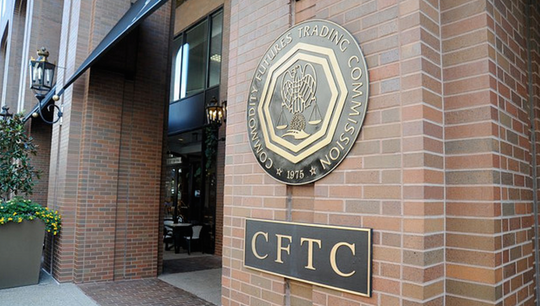Changes in the Irish asset management landscape
By Aaron Mulcahy and Fearghal De Feu, Maples Group
Published: 31 January 2020
Rise of the MegaManCo, CP86 2.0 and Increased Regulatory Focus on Substance
There has been a substantial change in the Irish asset management landscape since the UK government invoked Article 50, triggering the countdown to Brexit. One of the more significant changes is a marked increase in interest in the already popular 'SuperManCo' (a dual authorised AIFM and UCITS management company) and the 'MegaManCo' (an enhanced version of the SuperManCo, allowing for additional 'MiFID top up' permissions). In tandem with this increase, there has been a shift in the substance expectations of the Central Bank of Ireland (the "CBI") for new entities. This has led to firms, authorised post July 2018 being subject to new substance requirements. Now that Brexit contingency arrangements are largely in place, the CBI has signalled its intention to bring entities authorised before 2018 in line with its current expectations on substance which may require those firms to review and build out their resourcing model.
Rise of the MegaManCo
There has long been a trend in Ireland for fund sponsors with multiple fund ranges to consolidate the management of their funds under a SuperManCo authorisation, rather than having multiple self-managed UCITS and internally-managed AIFs.
The SuperManCo has proved popular because it can be used to manage multiple ranges of AIFs and UCITS and can passport its services across the EU by way of a freedom of services passport or on a branch basis. From a regulatory perspective, the authorisation process under UCITS and AIFMD can be streamlined and run in parallel and once authorised it can benefit from centralised
thematic inspections, one CBI supervisory contact and a single set of regulatory documents. The SuperManCo also allows for operational efficiencies with one board and one set of senior management responsible for key management functions, known as designated persons ("DPs").
Prior to Brexit, it was relatively uncommon for SuperManCos to be authorised to undertake MiFID top up permissions such as individual portfolio management ("IPM") and investment advice. Activities were typically limited to collective portfolio management of UCITS and / or AIFs.
The prospect of UK managers losing their ability to offer services such as IPM and investment advice across the EU in the case of a 'hard Brexit' resulted in UK managers seeking out flexible solutions to allow them to continue to manage segregated mandates and to market funds on a pan-European basis. Such options included establishing a MiFID firm or a MegaManCo in the EU27. While it is difficult to estimate the number of new applications for authorisation, the CBI has indicated that it has received over 100 Brexit-related authorisation applications. In addition, since 2016, there have been an increasing number of firms choosing to be authorised or upgraded to a MegaManCo (circa 18) or seeking stand-alone MiFID authorisations (circa 29).
The MegaManCo has proven to be a flexible alternative to establishing a MiFID firm in Ireland for firms who do not require the full list of MiFID services (most notably execution of orders) – as it combines the ability to manage multiple AIFs and UCITS with the flexibility to perform the key MiFID authorised activities of IPM, investment advice and receipt and transmission of orders. In particular, IPM facilitates a fund sponsor to continue to act as discretionary investment manager for EU segregated mandate clients (with appropriate levels of delegation/outsourcing back to the UK affiliate firm) and investment advice facilitates marketing and distribution activities of investment capabilities across the EU.
A Shift in Substance Expectations
In July 2018, as UK firms sought to put Brexit contingency arrangements in place, the European Securities and Markets Authority published a series of opinions, which sought to support supervisory convergence in asset management (the "Brexit Opinions"). The focus of the Brexit Opinions was to avoid regulatory arbitrage. In particular, the Brexit Opinions required that national competent authorities apply additional scrutiny to firms seeking authorisation with less than three locally-based full time equivalents ("FTEs").
The CBI's application of the Brexit Opinions resulted in firms seeking SuperManCo and MegaManCo authorisation in Ireland post-the Brexit Opinions being met with the CBI's substance expectations (which vastly exceeded those required of incumbent firms). Now that Brexit contingency arrangements are largely in place, the CBI has indicated that it intends to increase focus on firms authorised pre-2018 – to ensure alignment by them with the obligations imposed on firms who were authorised post-2018.
Bridging the Gap – CP86 2.0
This increased focus has come at the same time as the CBI's thematic review of its Fund Management Company Guidance ("CP86 Guidance"), which commenced in mid-2019 and is ongoing ("CP86 2.0"). This is expected to operate in three phases. Phase 1 was a detailed questionnaire, issued to more than 300 firms (across the spectrum of Irish management companies, self-managed UCITS and internally managed AIFs). Phase 2 was a desk-based review that involved a request for a detailed list of documents from selected firms in the areas of:
- board documentation (including organisational effectiveness);
- the investment management function; and
- the fund risk management function.
Phase 3, which is due to commence shortly, will involve a series of onsite inspections of selected firms.
Recently the CBI indicated that the review should complete during the first half of 2020 with communications being issued to industry during the second half of 2020.
One likely change to arise from the CP86 review relates to the substance elements as set out below:
- Increased time commitments for DPs: There is a possibility that current time commitments for key management functions (as indicated to the CBI in the initial Individual Questionnaire process) will be required to increase.
- DPs to be based in Ireland: The outcome may be a requirement for some or all DPs to be located in Ireland (or in any EU27 branches of the firm).
- AUM-based resource requirements: The requirements may be set depending on the nature, scale and complexity of the firm / fund's business. While there have been trends based on AUM to date, the CBI may consider implementing AUM as a key metric in making this assessment.
- Implications for relocating staff for Irish operations: For existing funds / firms, in order to support Irish-based DPs, this may require the build out of a full Irish presence (premises etc.), a broader executive function (executive directors, a CEO etc.) and possibly Ireland-based support staff.
If implemented, the above changes may require the 176 existing Irish UCITS management companies and AIFMs authorised before 2018 to review and build out their resourcing model, particularly where they rely on DPs provided by the fund sponsor or third party firms. To the extent that the time commitments are increased materially, it may make the provision of DPs a less common model as the persons providing such services will be required to concentrate their time across a small number of Irish management companies. This may result in firms who rely on DPs provided by third parties to engage their own staff in Ireland or to replace DPs with staff from the firm's group based in Ireland or any EU27 branches of the firm. These challenges will be more acute for the 244 existing self-managed UCITS and internally-managed AIFs who typically have no staff,
and instead rely on DPs provided by the fund sponsor or third party firms. Depending on the substance requirement that will apply to such entities, it may be necessary for the fund sponsor to consider obtaining CBI authorisation of a SuperManCo to avail of the benefits noted above, engage the services of a hosted SuperManCo arrangement or look to move the fund to a third party platform with its own SuperManCo.
Conclusion
The last two years have seen a significant change to the Irish asset management landscape with the emergence of the MegaManco and the impact of supervisory convergence being felt by firms seeking authorisation through the CBI's enhanced substance requirements. The gap between firms' authorised pre- and post-the Brexit Opinions has not gone unnoticed and the CBI's messaging to industry and focus of CP86 2.0 all point to the prospect of this gap closing. This enhanced focus on substance will provide challenges for some as they seek to align their substance with the CBI's expectations and opportunities for others, who benefit from the possible consolidation of Irish management companies and are willing to provide hosted SuperManCo solutions to third-party funds.








